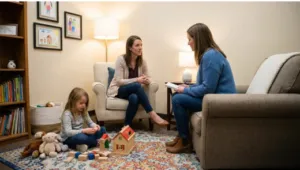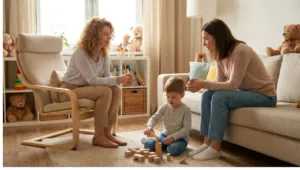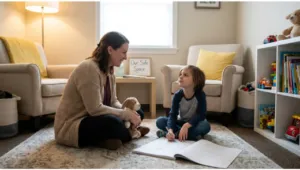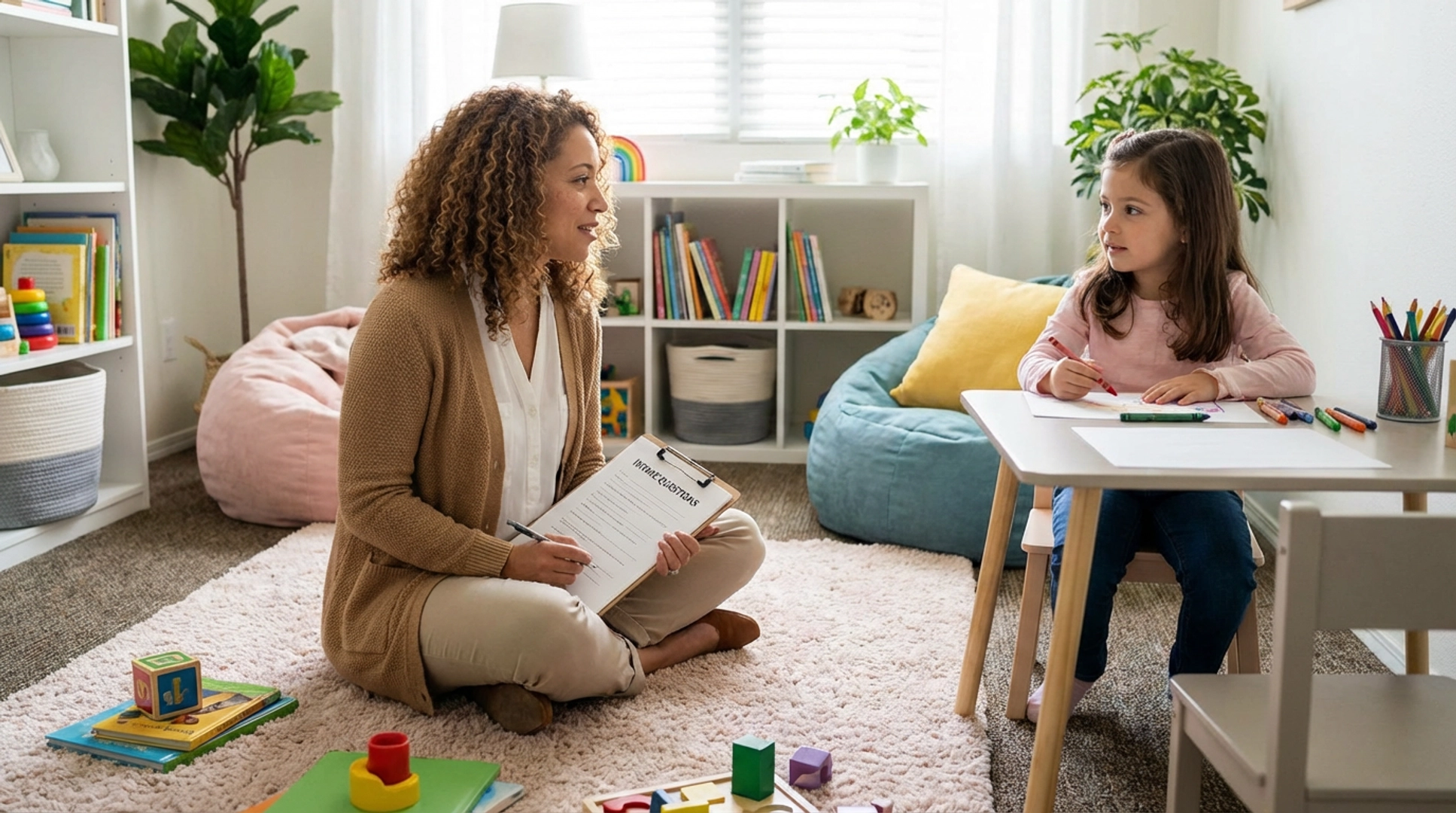Intake questions for child therapy are the beginning of the healing process for your child. These questions enable the therapist to get insight into life, feelings, and the behavior of your child. Most families in Boulder and elsewhere will resort to therapy when their child is having feelings, school, or major life transitions. Being prepared about what to expect during the initial session will help you a great deal and prevent the stress that can be inflicted on both you and your child.

Why Are Intake Questions for Child Therapy So Important?
Before therapy begins, the therapist needs to learn about your child’s world. Intake questions for child therapy help gather this information in a gentle and caring way. These are questions that examine the past, family structure, emotional responses, and behavioral tendencies of your child. The responses assist the therapist in coming up with a development plan to suit your child. Consider intake as a beginning. It is not a quiz or a test. It is an opportunity to present what you know best to your child.

What to Expect in the First Meeting
The initial meeting is generally held between the parent/ caregiver. The child is sometimes also there, depending on his/her age. The therapist will introduce questions in a gentle, cordial manner. There is a relief not to utter everything right. Here’s one simple line before we continue: child therapy in Boulder is a growing need for many families.

Types of Intake Questions For Child Therapy You May Hear
Home and Family Life
Questions therapists can ask are:
- What is the occupant of the house?
- Is it divorce, death, or a major change?
- What are the styles of parenting?
- Does he/she have any siblings?
These child therapy intake questions assist the therapist in trying to get to know what type of world the child has on a daily basis.
Birth and Early Development
The question may be put to you:
- Was the pregnancy term and healthy?
- Did the child have birth complications?
- How old was your child when he/she started to walk or to talk?
- In the early cases, did delays occur?
In this section, it aids the discovery of seedlings of behavior or mood problems.
School and Learning
Some of the questions it may ask include:
- Is your child liking school?
- What are the grades and homework?
- Are there learning, attention problems?
- Did somebody bully your child?
These intake questions for child therapy focus on the child’s school life, where many problems first show up.
Behavior at Home and Outside
Such typical enquiries include:
- Does your child get angry or become sad frequently?
- What is their behavior toward other people?
- Do tantrums or fights?
- What bothers your child?
Here, patterns and triggers are sought out by the therapist. It assists them in planning gear that is effective for your child.
Sleep, Food, and Energy
These are the questions to which your answers are of importance:
- Does your baby get to sleep through the night?
- Bad dreams or difficulties in falling asleep?
- Are they feeding adequately?
- Are they inclined to be tired or restless?
These intake questions for child therapy help check the body-mind connection, which is key in child mental health.
Friendships and Social Skills
The question the therapist may pose will be:
- Does he or she have friends?
- Do they enjoy people?
- Are they active (play) or do they spend a lot of time alone?
This informs them of how your child manages in their social life. There are shy kids and those who are left out or rejected.
Emotional Awareness
The questions could be;
- Is your child able to name his/her feelings?
- When are they sad?
- Does he/she fear or worry?
Children tend to experience large feelings. Such questions serve the therapist in teaching the healthy means to express them.
Parenting Support: Intake Questions for Child Therapy That Help You Too
Therapists are willing to help you as well. The questions you may be asked are:
- What is hard about being a parent today?
- What do you do during rough times?
- Are you having any trouble with routine or discipline?
It is to collaborate, not to judge you. Your encouragement plays a crucial role in the development of your child.
Child-Focused Gentle and Trust-Building
In case the child participates, the therapist can ask:
- What is your favourite thing to do?
- Are you happy on most days?
- Is there anything that frightens you or that is depressing?
- Who are you faithful to?
These intake questions for child therapy are asked in soft, simple ways. The goal is to build trust and connection.

Tips for Answering Intake Questions
1-Tell the truth-
The therapist can wade out with this anyways.
2-Be unconcerned about right answers –
You cannot fail a test.
3-Provide information and make it easy to understand-
Keep the answer short.
4-It is all right to say: I do not know –
You could add more the next time.
5-Bring notes in case you need them –
It will enable you to concentrate.
How Intake Leads to a Therapy Plan
After the intake is over, the therapist develops a personalized plan. It can involve play therapy, family sessions, or work on skills. Each child is individual, as well as each plan. The priorities of your child prompt first. You can request a copy of the plan, or you can be asked to provide comments.
Common Worries Parents Have About Intake
“And what will become of me when I miss something ?“
That’s okay. Memo, next time, you can talk more.
“Will I be at fault for my child’s struggles?”
No. Blame is not about therapy. It is a support thing.
“What happens in the case of my child who refuses to talk?”
Since therapists are trained in the creative ways of relatedness, they can establish the relationship in a gentle manner.
“Are medical records necessary?”
Use them if you have them. Otherwise, you can still begin intake.
Final Thoughts: Trust the Process
People should not consider intake questions to be the entire journey. They present the door of healing, growth, and hope. It might be painful initially, but simply by attending, you are doing something very strong. The less secretive you are, the more you are able to help your child through Mighty Kids therapy.
Conclusion: Your Role Matters
It takes courage and love to answer child therapy intake questions. You are assisting the therapist to know the world of your child. By doing this, you are giving your child a chance to become better, stronger, and achieve what he/she is supposed to. A kid can go to therapy while at school. There are other people like you. A lot of families are walking down this road and healing step by step.

